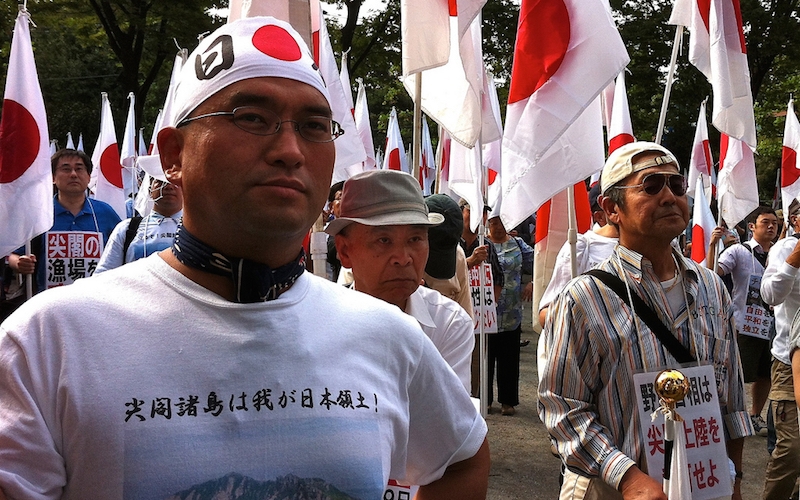
Rising Nationalism a Threat to Asia
Given its diverse cultural, linguistic and religious mosaic, nationalism is always lurking beneath the surface in Asia. The competition for natural resources has only exacerbated the tendency for nationalist sentiment to emerge, threatening the concept of Pan Asianism. Natural resource nationalism is evident in a variety of countries and has manifest itself in a number of ways, ranging from more restrictive foreign investment and trade policies, to militarism.
A rising propensity toward militarism — between regional powers, and on the grand global chess board between China and the U.S. – is a source of growing concern. The high profile conflict between China and the Philippines over the Scarborough Shoal — and over the longer term between China and five other Asian nations over the Spratly Islands — is evidence of this, as is competition for superior blue water military capabilities between China and India. The stage is set for rising military expenditures throughout the region, which will only heighten the predisposition toward militarism and negatively impact already strained national budgets.
Domestic politicians so often utilize nationalism to achieve their own objectives, and the average citizen is more likely to rally around the flag than thoughtfully consider the consequences of their governments’ actions in territorial disputes.
So many Asian governments continue to be products of their own history and have little interest in moving past that history with their neighbors – even though it would clearly be in their long term interest to do so. Until electorates choose to put into office enlightened leaders who are interested in putting history behind them, Asia seems incapable of moving on.
It doesn’t help that the U.S. has chosen to ‘pivot’ back toward Asia while China continues to flex its muscles. America’s allies naturally applaud the move, while the Obama administration flatly denies that the pivot has anything to do with China’s rise. It would be better if the U.S. simply admitted what the pivot was really all about, that China admit why its rise in military spending is occurring, that Japan admit why it is seeking to have offensive military capability for the first time since World War II, and that the Philippines be honest about why it is talking about inviting the Americans back to the Philippines. A little honesty – stating the obvious – can go a long way in international relations and is the first step toward making genuine progress in diplomatic affairs.
It is hard to imagine economic nationalism becoming less important in Asia in the short term. It is similarly difficult to phathom that militarism will become a less significant component of the Asian landscape in time. Regrettably, these concepts are well entrenched in regional ‘diplomatic’ lexicon and are openly embraced by Asia’s population. Since there does not appear to be a resolution to any of the current conflicts nor is there likely to be a reduction in nationalist sentiment in the short term, we should not expect any substantive change in the dynamics at play for the foreseeable future.
Taken together, these trends run counter to the euphoria about Asia’s ongoing growth prospects and raise concern about Asia’s ability to attract foreign investment, or remain peaceful. The Great Recession proved that Asia is not invulnerable to another global economic slowdown. The Asia Crisis proved that foreign investment can indeed disappear from the region. And numerous historical conflicts have demonstrated that Asia remains a tinderbox of potential conflict between neighbors, always seeming to simmer beneath the surface.
The coming months will undoubtedly prove to be a litmus test as to whether Asia can sustain high rates of growth in the face of sustained headwinds, and whether current Asian hot spots will remain conflict free. As the players in the South China Sea island disputes continue to jockey for position and ramp up their respective military presence, it is likelier than not that conflict will eventually erupt.
This article was originally posted in The South China Morning Post.

